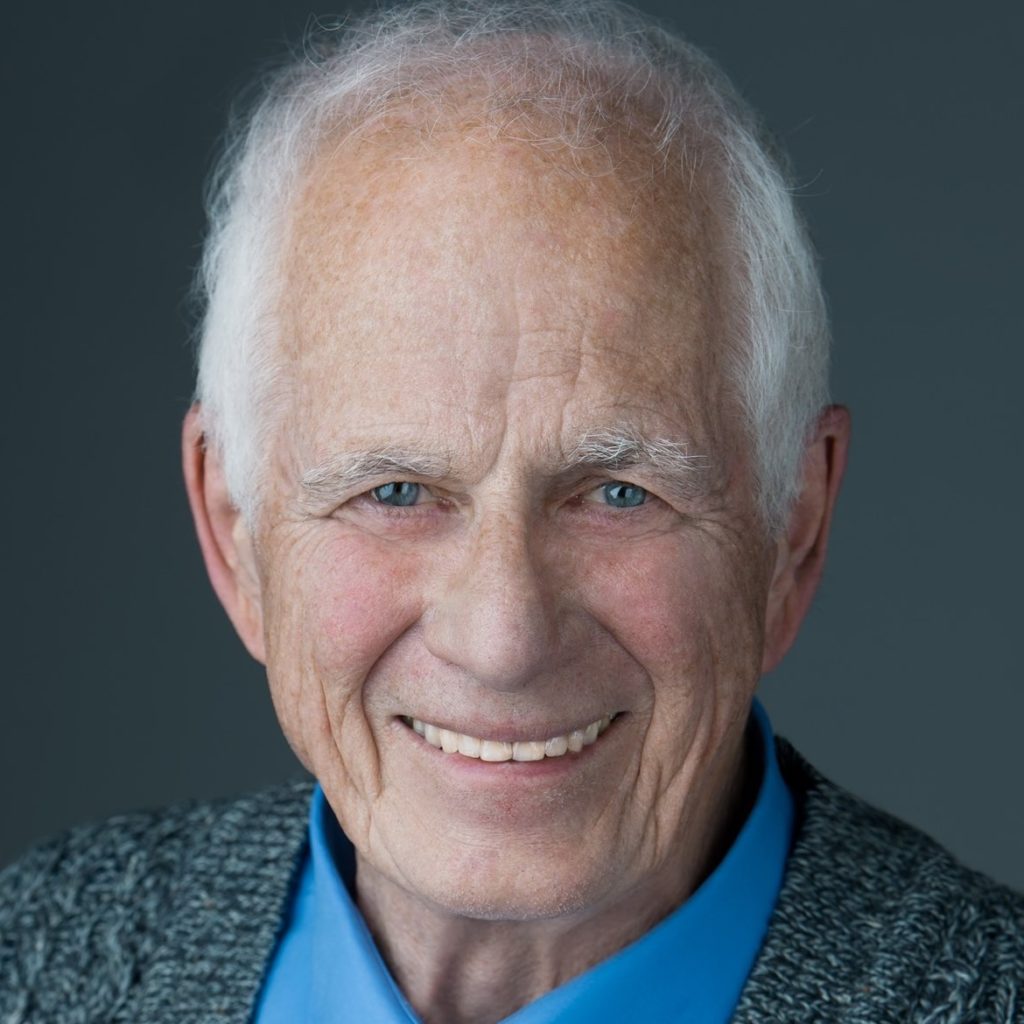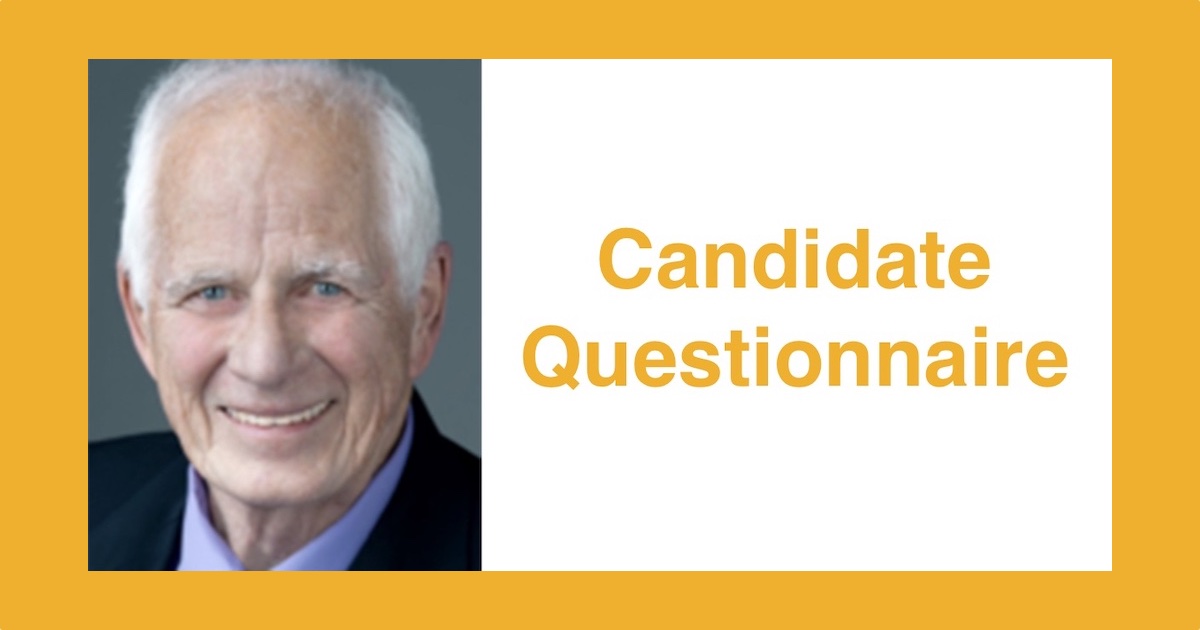Key actions and positions posted on the intersection of disability and education, jobs, immigration, climate crisis, criminal justice and more

Santa Fe, NM, Sept. 10 – Libertarian Senate candidate Bob Walsh has responded to a detailed candidate questionnaire on disability issues. The questionnaire is from RespectAbility, a nonpartisan nonprofit disability organization that does not endorse candidates. The questionnaire is purely for educational purposes. RespectAbility has reached out to key Senate and gubernatorial campaigns on both sides of the aisle and will be posting all responses on The RespectAbility Report. The full text of RespectAbility’s questions and Walsh’s responses follows:
1. Learning during the COVID-19 pandemic has led to more issues and concerns for all students and their families, but this is especially true for students with disabilities. Additionally, the gap in graduation and drop-out rates between students with and without disabilities continues to undermine their futures. For example, in the class of 2018, only 66 percent of Black students with disabilities, 71 percent of Hispanic students with disabilities, 77 percent of white students with disabilities, and 79 percent of Asian-American students with disabilities completed high school. Furthermore, just seven percent of students born with a disability graduate from college. What is your plan for ensuring that all students with disabilities receive a quality and appropriate education to acquire the critical and marketable skills necessary to compete in a job-driven economy?
The Constitution did not give Congress authority over education. The New Mexico Constitution requires free public schools sufficient for the education of all the children. A recent judgment enjoined the State to ensure that New Mexico schools have sufficient resources. The judgment includes resources necessary to give children with a disability the opportunity to obtain a uniform and sufficient education, an education that prepares them for college and career. Congressional action would be both unconstitutional and unnecessary.
2. In the economic expansion prior to the COVID-19 pandemic, the national employment rate for working-age people with disabilities in America was 37.6 percent compared to 77.8 percent of people without disabilities. Further, there continues to be significant disparities in employment outcomes within the disability community, which varies from state to state. There are significant racial disparities in disability employment outcomes. 38.9 percent of working-age white people with disabilities have jobs compared to only 29.7 percent of working-age Black people with disabilities had jobs, 39.4 percent of working-age Hispanics with disabilities and 43.2 percent of working-age Asian-Americans with disabilities. The pandemic has ravaged the disability community and more than 1 million workers with disabilities have lost their jobs. If elected, what will you do to ensure that the government is removing barriers and promoting high quality, inclusive services built on evidence-based policies, practices and procedures leading to competitive, meaningful careers, which includes promoting entrepreneurial opportunities?
Whether our disabilities are minor or severe, whether they are apparent or hidden, we want to be treated like equal adults, not like children. We want to be identified by our skills, not our disabilities. Andrea Bocelli is an opera singer, songwriter, tenor, and record producer, not “that blind guy.” We do not want anyone giving us special treatment, especially spouting such bureaucrat-speak as “evidence-based policies and procedures.” The barriers to be removed are government barriers that limit economic development. We should deregulate businesses; deregulate employment, especially when the employer is an individual; remove tariffs, and encourage immigration. We need more opportunities for us to use our skills, regardless of our disabilities.
3. The disability community fundamentally believes in the need to ensure “Nothing about us, without us” – real inclusion and places at decision making tables – because we know solutions that work and want to be a part of making our communities stronger. What specific measures have you taken to make your campaign accessible for, and inclusive of, people with disabilities, as every issue impacts our lives?
My staff consists of one part-time person. I have not inquired about potential disabilities.
4. RespectAbility published Disability in Philanthropy & Nonprofits, based on our study on the levels of disability inclusion in the social sector across the country. This largescale study found significant data showing that nationwide, organizations overall want to be inclusive, but are unintentionally excluding the one-in-five people with disabilities. What will you do to promote policies and practices designed to support full community engagement, access and inclusion of people with disabilities?
If elected, I will seek advice from a organization that advocates for people with disabilities.
5. Elected officials have multiple opportunities to demonstrate a strong commitment to diversity and inclusion, full community participation and celebrating the contributions and accomplishments of people with disabilities through press releases, speeches, celebratory events including National Disability Employment Awareness Month. There are significant stigmas that create attitudinal barriers that limit options and perpetuates low expectations for people with disabilities. What measures will you take to combat these stigmas and promote opportunities for people with disabilities?
As an elected Senator, I expect to be too busy studying submitted bills and proposed legislation to have any opportunity to demonstrate anything publicly.
6. In our nation’s public schools, there are 6.3 million students with disabilities. The changing demographics of America are reflected in these students, with 11.4 percent of students with disabilities nationwide, almost 720,000, also identified as English-language learners. Their accommodation needs are compounded by the fact that many come from households that do not speak English at home, adding an extra challenge for parental interaction. It can also be harder to diagnose disabilities in children when they are English language learners. Additionally, immigration issues and fears over the public charge rule impact students with disabilities, their families and the wider workforce. What policies would you advance to enable students and their families who are English language learners with disabilities to succeed in school and employment?
The Constitution did not give Congress authority over education. The New Mexico Constitution requires free public schools sufficient for the education of all the children. A recent judgment enjoined the State to ensure that New Mexico schools have sufficient resources. The judgment includes resources necessary to give children with a disability the opportunity to obtain a uniform and sufficient education, an education that prepares them for college and career. Congressional action would be both unconstitutional and unnecessary.
7. Housing, criminal justice, climate issues, transportation and every other area have significant impacts on people with disabilities. What additional policies and priorities, other than those already discussed above, do you plan to focus on to improve the lives of people with disabilities?
The only proper role for Congress is to secure the rights of the people. Instead, Congress is led by a military-industrial establishment that is more interested in crony capitalism than the rights of the people. Each establishment political party seeks control over all three branches of government in hopes of achieving the tyranny of one-party government. Most of the listed issues are local matters that should be decided locally. Climate effects are extremely uncertain because predictions require assumptions about future economy, future technology, and future emissions; because they use simplified models of complex physical processes; and because any particular change in climate will have both benefits and challenges.
Walsh is facing off against Democratic Senate Candidate, Congressman Ben Ray Luján and Republican candidate Mark Ronchetti in this year’s closely watched election. RespectAbility has been in communication with both the Luján and the Ronchetti campaign about completing our non-partisan questionnaire. We are currently waiting for their responses to our questionnaire.
RespectAbility is a nonprofit, nonpartisan organization that fights stigmas and advances opportunities so people with disabilities can fully participate in all aspects of their communities. RespectAbility does not rate or endorse candidates. View more coverage of 2020 candidates.

Be First to Comment